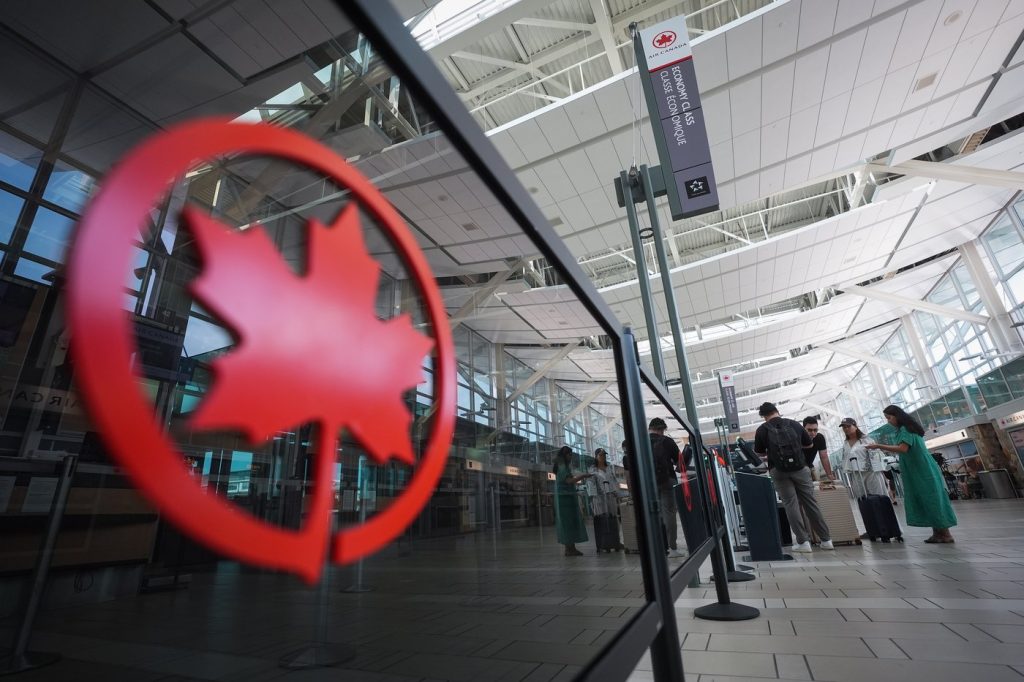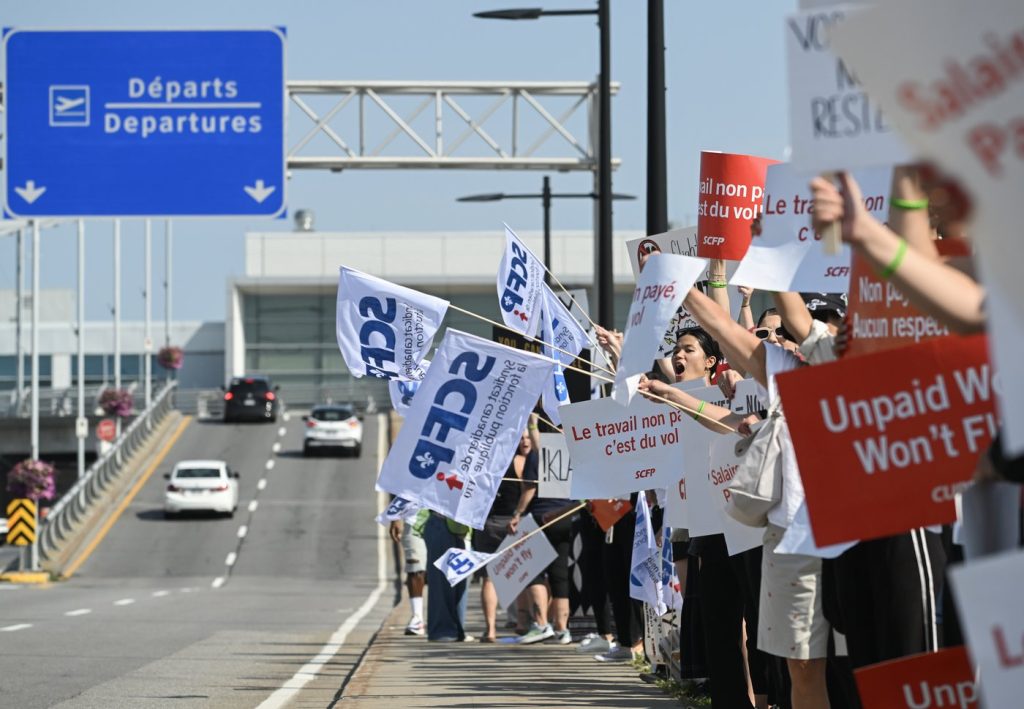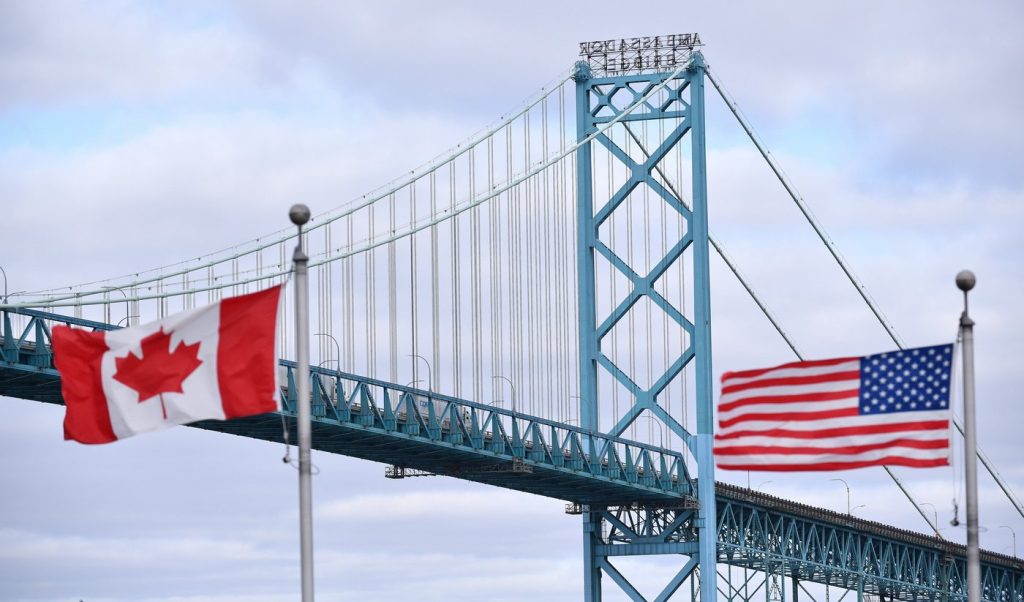Air Canada has announced that all flights remain suspended while awaiting the outcome of a process initiated by the Canada Industrial Relations Board (CIRB). This action follows the federal government’s directive for both the airline and the Canadian Union of Public Employees (CUPE) to resume operations and seek resolution of their labor dispute through binding arbitration.
In a statement released late Saturday, Air Canada did not provide clarity on when the rolling cancellations would cease or when flights would be resumed. The airline indicated that the cancellations were a response to a labor disruption commenced by CUPE, which represents flight attendants, leading to a strike that began on August 16, 2025. As a result, all Air Canada and Air Canada Rouge flights have been canceled until at least the afternoon of August 17, 2025.
Jobs Minister Patty Hajdu is defending the decision of the federal government to intervene in what has become a contentious labor dispute within Canada's largest airline. Critics, including various unions and opposition parties, have accused the government of favoring corporate interests over workers’ rights. Hajdu justified the intervention by stating that she met with both parties on Friday night and found that their talks had reached a significant impasse, necessitating quick action to minimize economic disruption.
During a press conference in Ottawa, Hajdu expressed concerns that a prolonged work stoppage could leave thousands of Canadians stranded both domestically and abroad, which she stated is unacceptable. She emphasized that while the decision to intervene was not taken lightly, the risks to the economy were too significant to ignore, particularly given the current economic climate exacerbated by external pressures like U.S. trade policies.
The union, representing over 10,000 flight attendants, criticized the government’s intervention, arguing it undermines their bargaining capabilities. Wesley Lesosky, the head of CUPE’s Air Canada Component, asserted that the government is violating rights to take job action and is effectively forcing flight attendants to work without pay while Air Canada reaps significant profits. Furthermore, CUPE has called for the chair of the CIRB, Maryse Tremblay, a former Air Canada legal counsel, to recuse herself from the proceedings, citing a perceived conflict of interest.
Opposition from Conservative labor critic Kyle Seeback reiterated concerns about worker rights, stating that government intervention should not dictate terms of employment or force workers into unpaid labor. He accused the government of favoring corporate interests over the welfare of employees. The impact of the strike has already been felt severely, with Air Canada canceling over 600 flights in advance of potential disruptions, and Hajdu warned that service normalization could take several days.
Matthew Holmes from the Canadian Chamber of Commerce underscored the gravity of the situation, highlighting that the travel disruptions could affect nearly a million Canadians. The Minister cited previous labor disruptions that had had sweeping negative effects on the economy, referencing significant strikes in 2023 that disrupted major transportation and supply chain networks. The federal government invoked Section 107 of the Labour Code, permitting intervention to achieve industrial peace.
Unifor, Canada’s largest private-sector union, criticized the government’s involvement, indicating that such actions signal to federally regulated employers that fair bargaining may not be necessary. They warned that undermining workers' rights would not lead to long-term stability. Interim NDP Leader Don Davies denounced the use of Section 107 as a blatant misuse of power, urging the Liberal government to call for parliamentary discussion on back-to-work legislation if they deem it necessary.
As the union and Air Canada had been negotiating for nearly eight months without resolution, the union's announcement of a strike followed a breakdown in talks. Hajdu's previous optimism regarding a potential resolution quickly diminished after a meeting that she described as “disappointing.” The ongoing strike action commenced just before 1 a.m. ET on Saturday, directly preceding Air Canada’s decision to lock out its agents approximately 30 minutes later. Following that, Hajdu’s announcement for government intervention was made less than twelve hours into the strike.
Under this new directive, the existing collective agreement is to remain in effect until a new agreement can be established by the arbitrator, signaling the government's commitment to finding a resolution to the present dispute.












